
Introduction
In the flashy world of entertainment and business, celebrity endorsements have long been a powerful way for brands to connect with consumers. Linking a product to a famous face can increase interest and drive sales. But this strategy has risks, especially when celebrities get caught in scandals. This article explores how celebrity scandals affect brand endorsements, focusing on the impact on a brand’s image and finances.
The Power of Celebrity Endorsements
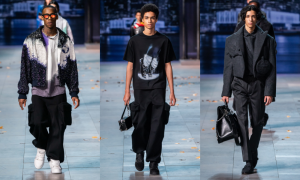
Celebrity endorsements have long been a proven way for brands to build awareness and trust with consumers. When a well-known figure promotes a product, it taps into their fan base and creates a positive connection. Studies show that celebrity endorsements can increase brand recall by up to 70%, as people link the product with qualities they admire in the celebrity.
However, this influence can be risky. While the right celebrity can boost a brand, a celebrity’s bad choices can hurt it. Endorsing someone with a controversial or unpredictable image is a gamble for brands.
The Appeal of Celebrity Endorsements
Celebrity endorsements are a popular part of modern marketing. The idea is simple: celebrities can influence public opinion and behavior. When a well-known actor, musician, or athlete supports a product, it creates a bond between the consumer and the brand. This connection often leads to more brand recognition, loyalty, and sales.
Brands carefully pick celebrities whose image matches their values and target market. A good partnership can raise a brand’s profile and make it more appealing. However, if a scandal hits, the negative publicity can harm both the celebrity and the brand.
The Importance of Legal Protections in Endorsement Deals
As scandals become more common, endorsement contracts now include stronger legal protections. Most deals have morality clauses that allow brands to end the agreement if the celebrity’s actions cause harm. These clauses are getting more detailed, covering things like criminal charges or inappropriate social media posts. Celebrities are also becoming more careful about their behavior since one mistake can lead to big legal and financial problems. These clauses show how complex celebrity endorsements have become, especially in a world where the line between public and private life is fading.
The Dark Side: Celebrity Scandals
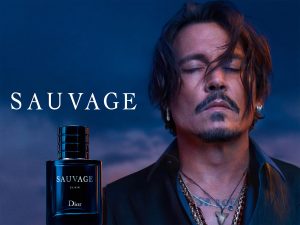
While the benefits of celebrity endorsements are clear, the risks are just as real. Scandals, such as personal misconduct or legal issues, can hurt the image of both the celebrity and the brands they endorse. In the age of social media, scandals spread fast and can be damaging.
Types of Scandals
- Personal Misconduct: Issues like substance abuse, cheating, or making controversial statements can lead to backlash. This hurts the celebrity’s image and the brands they represent.
- Legal Troubles: Celebrities facing legal problems, like tax issues or criminal charges, can lose marketability. Brands often cut ties to avoid being linked to bad publicity.
- Social Media Controversies: Celebrities are constantly watched on social media. A single tweet or post can spark outrage, leading to lost endorsements.
Celebrity Endorsements in the Social Media Age
With social media, the way celebrity endorsements work has changed a lot. Celebrities are more visible, and everything they do is watched by millions of people in real-time. Social media spreads both good and bad news fast, making scandals bigger and harder to control. Brands need to closely watch what their ambassadors say and do on platforms like Instagram, Twitter, and TikTok. In this connected world, even small mistakes can turn into big problems, and brands must act quickly to protect their image.
Impact on Brand Endorsements
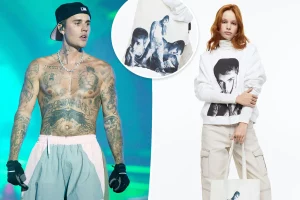
When a scandal breaks, brands must act fast to protect themselves. The impact of a scandal depends on how serious it is and how the public reacts.
1.Immediate Reactions
- Ending Contracts: In major scandals, brands may quickly end their contracts with the celebrity. This is to limit damage to their reputation and avoid financial losses.
- Public Statements: Brands often release statements to explain their position. This can include showing disappointment, affirming their values, or announcing the end of the partnership.
- Crisis Management: Companies may use crisis management strategies to reduce the damage. This could involve shifting focus to other campaigns or engaging with the public to rebuild trust.
2. Long-Term Effects
- Brand Image: A scandal can damage a brand’s image for a long time. Even after distancing themselves from the celebrity, brands may struggle to recover.
- Consumer Trust: Trust is key in consumer relationships. A scandal can break that trust, leading to a drop in loyalty and sales.
- Financial Losses: The financial hit from a scandal can be big. Brands may see stock prices drop, sales decrease, and marketing costs rise as they try to recover.
The Importance of Public Perception and Crisis Recovery
Public opinion is key in how brands deal with celebrity scandals. Some scandals, like bad behavior, make brands end the partnership right away. But others, like political views, need a more careful approach. For example, Nike’s support of Colin Kaepernick helped them connect with consumers who shared his values. To recover from a crisis, brands need to be open, act fast, and sometimes even embrace the issue if it aligns with their customers’ beliefs.
Case Studies
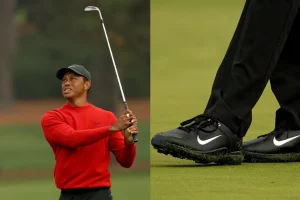
-
Tiger Woods and Nike
Tiger Woods’ 2009 personal scandal forced brands to rethink their partnerships. While some dropped him, Nike stood by Woods, a decision that drew criticism at first. Over time, as Woods rebuilt his image, Nike’s support paid off, and their partnership remained strong.
-
Lance Armstrong and His Sponsors
When Lance Armstrong’s doping scandal broke, brands like Nike, Anheuser-Busch, and Trek quickly cut ties. The scandal severely damaged Armstrong’s marketability and negatively affected the brands connected to him.
Navigating the Risks
For brands, celebrity endorsements require careful planning. Here are a few strategies to handle the risks:
- Thorough Vetting: Brands should do deep background checks on celebrities before signing deals. This helps identify potential risks early.
- Clear Contracts: Contracts should include clauses that allow brands to cut ties if a scandal arises.
- Diversified Marketing: Relying only on celebrity endorsements can be risky. Brands should have other marketing strategies in place to minimize losses if a scandal occurs.
- Crisis Plans: Brands should have a crisis management plan ready, so they can respond quickly and effectively if a scandal hits.
Strategies Brands Use to Handle Scandals
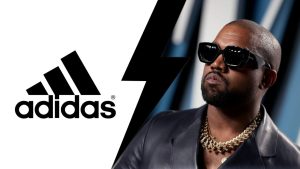
Brands know the risks of working with celebrities, so they use several strategies to protect themselves:
-
Morality Clauses
Many contracts include a morality clause. This lets the brand end the deal if the celebrity’s actions hurt the brand’s reputation. It’s a quick way for companies to cut ties in case of trouble.
-
Crisis Management
Brands often have a crisis plan ready. This may involve releasing statements to distance themselves from the celebrity, removing ads with the person, or even rebranding if needed.
-
Risk Assessment
Before signing a deal, brands now carefully check a celebrity’s past behavior and social media. This helps them decide if the celebrity is a good match.
-
Diversifying Endorsements
To reduce risk, brands often work with several celebrities instead of relying on just one. This way, if one deal fails, it doesn’t hurt the brand as much.
Ethical Concerns in Endorsements
As people become more aware of social issues, brands must make sure their endorsements reflect their values. Issues like diversity, fairness, and social responsibility are now part of brand strategies. Working with celebrities who don’t represent these values can hurt a brand. In the future, brands will not only look for popularity but also ethical alignment when choosing ambassadors. Social movements have pushed brands to be more responsible, and those that don’t adapt may lose customers and face more scrutiny during scandals.
Comparative Analysis: Brands That Dropped vs. Stood By Celebrities
While some brands are quick to cut ties when scandal arises, others may decide to ride out the storm. Below is a comparative analysis of brands that dropped celebrities in the wake of scandals versus those that stood by their ambassadors.
| Brand | Celebrity | Scandal | Action Taken | Outcome |
| Nike | Colin Kaepernick | Anthem protest | Continued support | Sales surged and brand loyalty grew |
| PepsiCo | Tiger Woods | Infidelity scandal | Dropped endorsement | Initial sales dip, slow recovery |
| H&M | Justin Bieber | Offensive remarks | Issued apology but retained him | Minimal long-term impact on sales |
| Adidas | Kanye West | Public rants | Terminated contract | Some consumer backlash, quick recovery |
| Louis Vuitton | Michael Jackson | Allegations of misconduct | Discontinued tribute | Limited long-term damage |
The Future of Celebrity Endorsements

The digital age is changing the celebrity endorsement game. Social media influencers now play a major role in brand promotions. But like celebrities, influencers can be dropped if involved in scandals.
A growing trend is the use of virtual influencers computer-generated personalities who have no risk of personal scandal. Brands like Balmain and Samsung have used virtual influencers to promote their products.
Additionally, AI is now used to track celebrities’ digital footprints, helping brands predict the likelihood of future scandals. This trend will likely shape endorsement strategies in the coming years.
Analysis Table: Impact of Celebrity Scandals on Brands
| Impact Type | Description | Example |
| Reputational Damage | Negative association leads to consumer distrust or backlash. | Tiger Woods and AT&T |
| Sales Decline | Immediate loss in revenue following the scandal. | Michael Phelps and Kellogg’s |
| Legal Ramifications | Legal challenges arising from a contract breach or defamation. | Johnny Depp and Dior |
| Public Backlash | Boycotts or negative social media campaigns against the brand. | Kanye West and Adidas |
| Positive Reinforcement | Strengthening brand image by standing by the celebrity. | Colin Kaepernick and Nike |
Comparative Table: Celebrity Scandals vs. Brand Response
| Scandal Type | Common Brand Response | Outcome |
| Infidelity | Termination of contract, PR distancing | Short-term damage, often repairable |
| Substance Abuse | Public statement of support or termination | Varies, with potential long-term impact |
| Political Controversy | Continued support (if aligned with brand values) | Positive response from targeted audience |
| Criminal Allegations | Immediate contract termination | Long-lasting reputational harm |
| Social Media Misconduct | Apology issued, partnership maintained or ended | Recovery depends on severity |
Conclusion
The relationship between celebrity scandals and brand endorsements is complex and fraught with challenges. While the allure of celebrity endorsements is undeniable, the potential risks cannot be ignored. Brands must carefully weigh the benefits against the potential fallout of a scandal, employing strategic measures to protect their interests. In the high-stakes world of brand endorsements, success lies in the ability to adapt and respond to the ever-changing landscape of celebrity culture.










